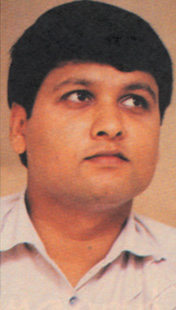|
Idolizing Iqbal By Laila Zehra Javeri After four years of research and several abandoned drafts, journalist Khurram Shafiq will now be publishing the first of his five volume biography of Allama Iqbal entitled Ishq Beparva Bhi Hai. The biography has been motivated by the writer’s life-long passion for Iqbal’s work. As he himself wittily defines it, “In the beginning there was the word and that word was Iqbal's.” Khurram is not new to the publishing world and already has various books to his credit, including the recently published Parables of Love. He has worked as a journalist for over ten years, with an Urdu daily and then as a writer for the Dawn group. Also, some years earlier, he published a book on the Quaid that read more like a screenplay and less like a monotonous history lesson. In fact, his experience of screen writing has led him to approach this new biography in a novel fashion. Here, the writer moves from scenes in Iqbal’s life and passages from his work to the events of his time in a montage of images. “History”, as the writer claims “lies only in the newspapers, all else is historical analysis.” And a biography is not true to its nature if it is broken down into the author’s formatted segments. In this book he attempts to mirror Iqbal’s life not compartmentalize it. “When we analyse Iqbal,” he asserts “we break him down into the person, the poems and, as such, we lose the connection.” Iqbal saw Sialkot turn from a small rural town to a haven of commercial opportunity. And, in the writer’s opinion, he associated success not only with academic endeavour, but also with material gain while dreaming of the same kind of success, of both thought and resource, for the Muslim world. Though the biographer suggests that there may have been some tension between the material and academic aspects of his life, Iqbal always returned to his passion for poetry. In this biography, Khurram uses poetry as a “collage” to push the fluidity of the narrative or to provide a digression for the reader. The poems are not rendered in their entirety but, rather, to add flavour to the work. Ghazals are presented in the popular norm of four couplets - as much as the audience can digest without distraction. “The last thing I want is for this biography to be dry… it has been as exciting as writing an Indian film story,” says the author. True enough, the poems and ghazals appear as spontaneously as songs in desi films tend to. There have been countless books on Iqbal, yet this ambitious project may prove refreshingly different. |
His experience of screen writing has led him to approach this new biography in a novel fashion. Here, the writer moves from scenes in Iqbal’s life and passages from his work to the events of his time in a montage of images.
|
|||
 THE HERALD, January 1998
THE HERALD, January 1998